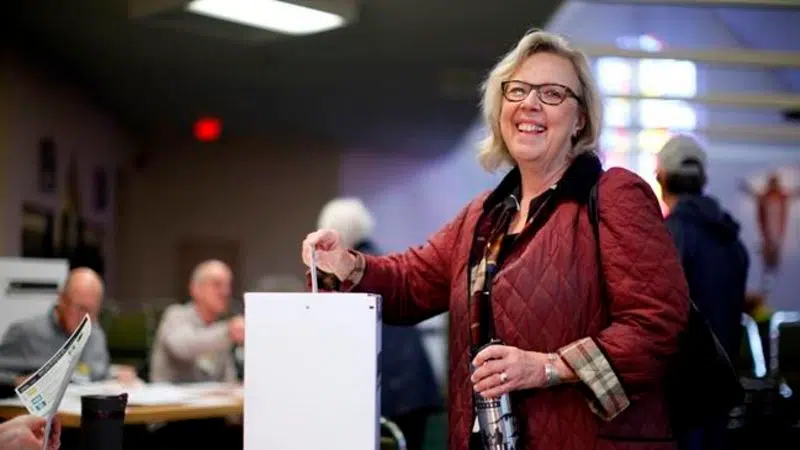
Greens elect MPs in New Brunswick and B.C., but barely increase seat total
VICTORIA — Green Leader Elizabeth May says increasing her party’s seat total by one in Monday’s federal election is a bigger victory than it seems and should not be considered a disappointment.
The Greens were hoping for a big breakthrough, but will become a force with three MPs, said May.
“We’ve done better in Canada than any Green party under the first-past-the-post system,” she said, adding there are 19 Greens who have been elected across Canada when provincially elected politicians are counted.
May won the only seat in the House of Commons for the Greens in 2015, followed by a byelection victory for the party last spring.

